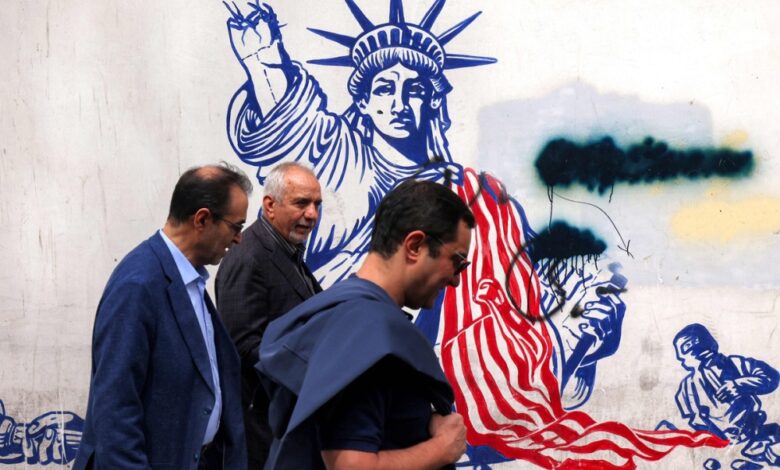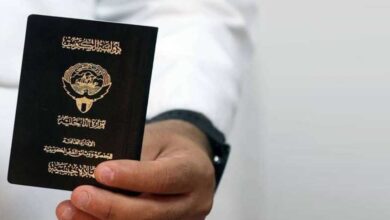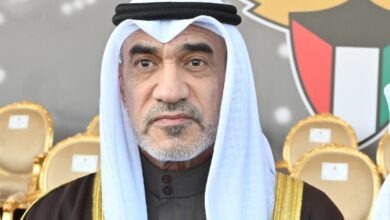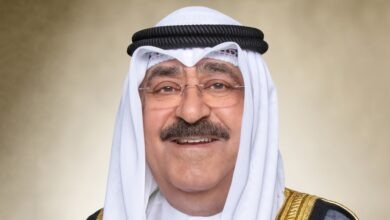
In a development that has taken many observers by surprise, high-level talks between the United States and Iran are set to take place Saturday. While U.S. President Donald Trump publicly announced the meeting during a press event with Israeli Prime Minister Benjamin Netanyahu, the groundwork had already been quietly laid through a series of discreet negotiations in Oman.
Al-Jarida daily quoting reliable sources confirm that four preliminary meetings had taken place in Muscat since late March, starting with an unofficial encounter on March 28. These talks, gradually progressing in seriousness, led to the planning of a formal meeting between American and Iranian delegations.
On Friday, the daily learned that security-level talks had produced a mutual agreement to advance to the diplomatic stage. President Trump shocked the international community by announcing that the U.S. and Iran would engage in high-level negotiations the following Saturday — although Iranian officials insist the meeting will be indirect and mediated by Oman.
Details of the Deal: mutual concessions and $10 trillion in economic potential
According to informed sources, the breakthrough came when Washington agreed to initially confine the negotiations to Iran’s nuclear program. In return, Tehran signaled its willingness to scale back support for affiliated militias in Lebanon, Iraq, and Yemen.
Additionally, the U.S. pledged to elevate any agreement to a formal treaty ratified by Congress, unlike the 2015 nuclear deal which was never codified and later scrapped by the Trump administration.
In exchange, Iran has reportedly agreed to open critical sectors — oil, gas, communications, and rare mineral extraction — to American investment. Washington expects potential returns of over $10 trillion from untapped economic opportunities in Iran, largely dormant for five decades due to sanctions and global isolation.
Strategic implications and geopolitical reactions
The talks come amid escalating tensions across the Middle East. Iran’s regional alliances — the so-called “axis of resistance” — are under pressure following setbacks in Gaza, Syria, Iraq, Lebanon, and Yemen. This fragile moment has created a rare opening for diplomacy.
Iranian Foreign Minister Abbas Araghchi remains cautious, emphasizing the talks are “a test as much as an opportunity” and rejecting negotiations based on threats. He warned that any progress must prioritize lifting sanctions and ensuring the dignity of the Iranian people.
Trump, meanwhile, has tied the outcome of the talks to preventing Iran from acquiring nuclear weapons, saying ominously, “If we don’t reach an agreement, very bad things will happen to them.”
Doubts persist amid hopes for progress
Despite the optimism surrounding the scheduled meeting, Iranian officials harbor deep doubts. Some see the American push as a coercive tactic, particularly in light of a recent letter Trump reportedly sent to Supreme Leader Ali Khamenei, warning of possible military action if talks fail.
Tehran remains firm on several red lines: its missile program and defense capabilities are off the table, and it refuses to dismantle its nuclear infrastructure. Iranian officials also expressed skepticism about Trump’s demand to end Tehran’s regional influence.
Moscow and Beijing: watching closely
Russia and China, long-standing supporters of Iran, have responded with measured support. Russia’s Deputy Foreign Minister Andrei Rudenko stated that the strategic cooperation treaty between Moscow and Tehran does not obligate military support in case of an attack, but includes consultation and joint exercises.
Meanwhile, Beijing urged Washington to show “political sincerity” and mutual respect, reminding the world that the U.S. withdrawal from the 2015 deal created the current impasse.
A tense yet pivotal moment
The upcoming Muscat meeting could either mark a historic breakthrough or further deepen mistrust between Washington and Tehran. With global stakes high and regional tensions simmering, the world watches as Oman once again plays the role of quiet mediator.
The United Nations described the meeting as a “significant opportunity to reduce tensions,” while Indonesian President Prabowo Subianto warned of potential global consequences should military escalation occur.
As Saturday approaches, hopes for diplomacy hang in the balance — alongside deep anxieties about what failure might bring.












